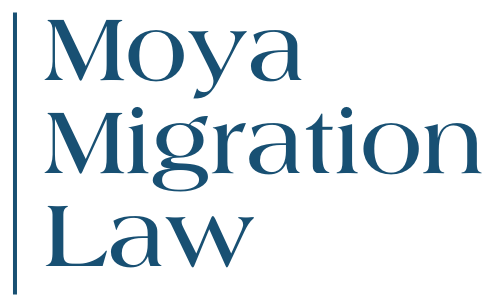Ministerial Intervention Australian Migration Lawyers
- Experienced guidance for Ministerial Intervention requests.
- Crafting compelling submissions for unique cases.
- Navigating complex "last resort" visa options.
- Dedicated advocacy for your future in Australia.
Daniel Moya
Founder of Moya Migration Law
Request Free
15-Min Consultation
Our Ministerial Intervention Services
Eligibility & Case Assessment
We assess if your case meets the Minister’s strict, intervention criteria after exhausting ART/Court appeals based on exceptional circumstances.
Compelling Submission Preparation
Our migration lawyers prepare powerful submissions, proving your case meets the specific grounds required for Minister intervention.
Guidance on Intervention Requests
We offer experienced guidance on lodging your Ministerial Intervention request, ensuring all evidence meet the strict requirements.
Request Your Free 15-Minute Consultation
We encourage a free 15-minute call to discuss your situation & map out a path to successfully requesting a Ministerial Intervention.
What Our Happy Clients Say
Hear directly from our successful learners.
Request Your Free
15-Min Consultation
What is Ministerial Intervention?
Ministerial Intervention is the Minister’s personal power to grant a visa as a final resort after all appeals are lost. It is only used when deemed in the “public interest.”
As of September 2025, intervention is no longer based on “unique or exceptional circumstances.” A case will only be referred to the Minister if it meets strict, objective criteria. Success now depends entirely on proving your case meets these specific grounds.


When Might the Minister Intervene?
To be eligible, you must have exhausted your ART appeal rights and be lawfully in Australia. Intervention is no longer granted on subjective compassionate grounds.
Your case will only be considered if it meets one of the strict, objective criteria set by the Minister, such as:
- You are the parent of a minor Australian citizen.
- You possess skills in a critical occupation and are currently employed.
Remember, you generally only get one chance, making expert preparation essential.
Why Choose Moya Migration Law for Your Ministerial Intervention Request?
Ministerial Intervention is a complex, last-resort pathway. Moya Migration Law offers experienced legal guidance, a client-focused approach to highlight your unique circumstances, and strategic preparation of your request to the Minister.
Guidance for the Intervention Criteria
Our lawyers have deep understanding of the Minister’s new guidelines and the specific, objective criteria required for a referral.
Client-Focused & Criteria-Driven Case Building
We provide personalised support, meticulously building your case to prove it meets the strict criteria for the Minister’s consideration.
Strategic Submission Preparation
We develop tailored strategies to prepare compelling, evidence-based submissions, positioning your case to meet the high threshold for Ministerial review.
In-Depth Migration Act Knowledge
Our thorough understanding of the Migration Act and the Minister’s discretionary powers ensures your request is expertly prepared to align with the current guidelines.
Request Your Free
15-Min Consultation
Our 5-Step Ministerial Intervention Request Process
Seeking Ministerial Intervention is a critical last resort. Moya Migration Law provides a structured approach to assess your eligibility, prepare a criteria-driven submission, and guide you through this discretionary process with expert care.
1
Initial Consultation & Eligibility Assessment
We review your ART/Court decision and assess whether the facts of your case meet one of the objective criteria in the September 2025 Ministerial Instructions.
2
Matching Facts to Objective Criteria
Our team works with you to determine if the facts of your case align with the strict, objective grounds for referral set out in the Minister’s guidelines.
3
Evidence Collation & Submission Drafting
We assist in gathering all relevant supporting evidence and meticulously draft a comprehensive submission proving your case meets the grounds for referral.
4
Formal Request Lodgement
We ensure your complete Ministerial Intervention request, with all evidence and submissions, is correctly prepared and lodged with the Department.
5
Post-Lodgement Guidance & Status
While the Minister’s decision is discretionary and timelines vary, we provide guidance on maintaining lawful status and advise on any communications received.

Principal Lawyer Daniel Moya
Meet Daniel Moya, Your Ministerial Intervention Lawyer
Moya Migration Law is led by Principal Lawyer Daniel Moya, who personally guides clients through the complex Ministerial Intervention request process. With over two decades in Australian migration law since 2002, Daniel offers expert strategic advice for these highly specific, discretionary matters.
Daniel is committed to meticulously preparing powerful submissions that prove your case meets the strict, objective criteria for the Minister’s consideration. He understands the gravity of these requests and provides dedicated, empathetic support. Daniel also offers legal assistance in Spanish.
Request Your Free
15-Min Consultation
The Minister's Power: Section 351 (formerly s417)
The power for the Minister to intervene in most migration cases comes from Section 351 of the Migration Act 1958 (Cth). This section allows the Minister, if they believe it is in the public interest, to substitute a more favourable decision for a decision of the Administrative Review Tribunal (ART).
While Section 417 was previously a well-known source of this power, it has since been repealed from the Act. The powers it contained for AAT-reviewable decisions have essentially been incorporated into Section 351. Understanding this legislative change is crucial when preparing a request.


Intervention for Character Decisions: Section 501J
A separate power exists for specific character-related decisions. Section 501J of the Migration Act 1958 (Cth) allows the Minister to substitute a more favourable decision for a character-based refusal or cancellation made personally by the Minister (under sections like s501, s501A, or s501B).
This pathway is distinct from Section 351 as it applies to decisions that are often not reviewable by the ART. Like other intervention powers, it is non-delegable, non-compellable, and requires unique or exceptional circumstances to be considered.
Frequently Asked Questions about Ministerial Interventions
What is Ministerial Intervention in migration cases?
Ministerial Intervention is a “last resort” where the Minister for Immigration can personally intervene in a visa case, typically after all tribunal (e.g., ART) and court appeals are exhausted, if it’s deemed in the public interest.
When can I request Ministerial Intervention?
Generally, you can only request Ministerial Intervention after a decision has been made on your case by a merits review tribunal like the ART, and you have no other ongoing legal appeals.
Do I need to be in Australia to request Ministerial Intervention?
Yes, you must usually be lawfully present in Australia (e.g., holding a Bridging Visa) when making the request and throughout its processing, unless you are in immigration detention.
What kind of cases does the Minister consider for intervention?
The Minister typically considers cases with unique or exceptional circumstances, such as strong compassionate grounds (e.g., irreversible harm to an Australian citizen/family, applicant’s age/health), or if legislation leads to unfair results.
Is the Minister required to consider my request?
No, the Minister is not legally obliged to intervene or even consider every request. This power is discretionary, and only a small number of cases are successful each year.
How long does a Ministerial Intervention request take?
Processing times vary significantly depending on case complexity and Department workload, often taking 12-18 months or longer. There’s no standard timeframe.
Can I submit more than one Ministerial Intervention request?
What happens if my Ministerial Intervention request is successful?
If successful, the Minister may grant you a visa or provide another favourable outcome that allows you to stay in Australia. The specific outcome depends on the case.
Why is legal assistance important for a Ministerial Intervention request?
Given the low success rate and strict criteria, expert legal help is crucial. An experienced lawyer can assess if your case meets the objective referral criteria and prepare a powerful, evidence-based submission that proves it.
Our Services
Administrative Review Tribunal (ART) Appeals ART Visa Appeals
Visa refused or cancelled? Don’t give up hope. Experienced representation for your ART review to challenge the decision.
Visa Refusals
If your Partner Visa has been refused, Daniel Moya offers 20+ years of experience in achieving positive outcomes at the Tribunal.
Visa Cancellations
Facing visa hurdles like refusals, cancellations, or PIC 4020 issues? Get experienced advice and management for your unique circumstances.
Partner Visas
Begin your journey to permanent residency. Experienced support for all Partner Visa applications, navigating the complex system with confidence.
Protection Visas
Seeking asylum or facing persecution? Daniel Moya provides crucial guidance and strategic advice for complex Protection Visa applications.
Family Visa
Reunite with loved ones in Australia. Explore options for Parent, Child, Carer, and other Family Visas with clear, experienced advice.
Citizenship
Ready to become an Australian citizen? Navigate the application requirements and process smoothly with experienced legal support.
Notary Public in Adelaide Notary Public
Need documents notarised in Adelaide for international use? We provide prompt, convenient, and reliable Notary Public services.
Court Appeals (Judicial Review) Judicial Review
Unfavourable Tribunal ruling? Challenge appealable errors in the Federal Courts with experienced legal guidance for Judicial Review.


